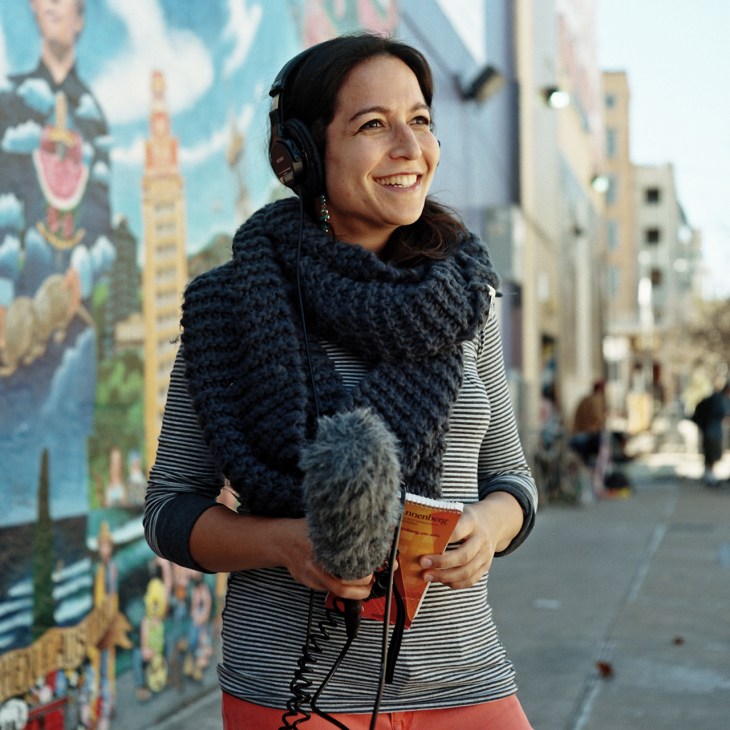Trump’s media cuts silence trusted voices and amplify misinformation
If you aren’t getting the headlines you want, blame the media. This tried-and-tested political formula might predate Donald Trump’s presidency but he has taken it to new extremes. In July he escalated his war on mainstream media with $1.1bn (€946m) of proposed cuts to public broadcasting. But it won’t be the journalists in Washington who will suffer the most from these changes. The country’s radio stations and their listeners risk losing access to considered, informed journalism.
Critics on the right argue that National Public Radio (NPR) and the Public Broadcasting Service (PBS) are Washington-centric and biased against Trump, with their newsrooms slanted towards liberal and progressive viewpoints. This is partially true. But they are hardly the radical-leftist propaganda machines that conservative pundits often claim that they are. Public media is not without its faults – last year’s suspension of a senior NPR editor who raised concerns about impartiality highlighted deeper issues. That controversy exposed a range of problems within these national networks, including falling revenues, dwindling audience numbers and internal disputes over how best to reverse the decline.

While NPR and PBS face significant challenges, the effect of the funding cuts will be felt most acutely at a local level. Across the US, millions of people rely on publicly funded regional radio for news and information. The country is vast and many rural communities have no newspaper or TV station; some even lack reliable internet access. More than 98 per cent of people, however, live within range of a public radio station.
The Corporation for Public Broadcasting, which distributes federal funding, assists about 1,500 regional radio and TV outlets. People tune in to these stations to find out what’s happening in their legislature, including whether dangerous weather is on the way or what community events are coming up. These aren’t platforms for anti-Trump rhetoric: they are often based in Republican heartlands, staffed by hard-working journalists committed to informing listeners about the events that affect their everyday lives.
“We have literally and figuratively weathered storms and the pandemic by providing life-saving information,” says Ju-Don Marshall, the CEO of WFAE, a public radio station in Charlotte, North Carolina, which has been on air since 1977. “Our communities have relied on us for our coverage of emergencies, government, education, health crises and the lack of affordable housing in the Charlotte region, as well as nonpartisan voter guides.”
Due to funding cuts, however, the station has been forced to let go of six employees, including three journalists. When you land on its webpage, a pop-up asks for donations to help keep independent reporting alive. Across the country, outlets such as WFAE are trying to figure out how to fill the gap left by dwindling federal support. Many are cutting staff, while some without diverse revenue streams might be forced to shut down entirely. NPR has previously estimated that up to 18 per cent of its local affiliates could close if federal funding is withdrawn.
This couldn’t come at a worse time. Local radio is needed more than ever. During Hurricane Helene last year, people turned to their radios for information about where to find shelter and supplies. As extreme weather events become more frequent and severe across the US, access to dependable, community-focused journalism is increasingly vital.
But it’s not just the climate that is volatile – so is the political landscape. Without independent coverage of local politics and current affairs, people will retreat deeper into partisan echo chambers, where rumour and conspiracy thrive. In the absence of trusted journalism, social-media sensationalism often fills the void – a troubling shift for any democracy.
“There are several studies that show that when local news declines, disinformation and misinformation take root, communities become more polarised and civic engagement declines,” says Marshall. In an information vacuum, something always fills the space – and in this deeply divided time, it’s unlikely to be the truth.
Charlotte McDonald-Gibson is a Monocle contributor based in Washington. For more opinion, analysis and insight, subscribe to Monocle today.



